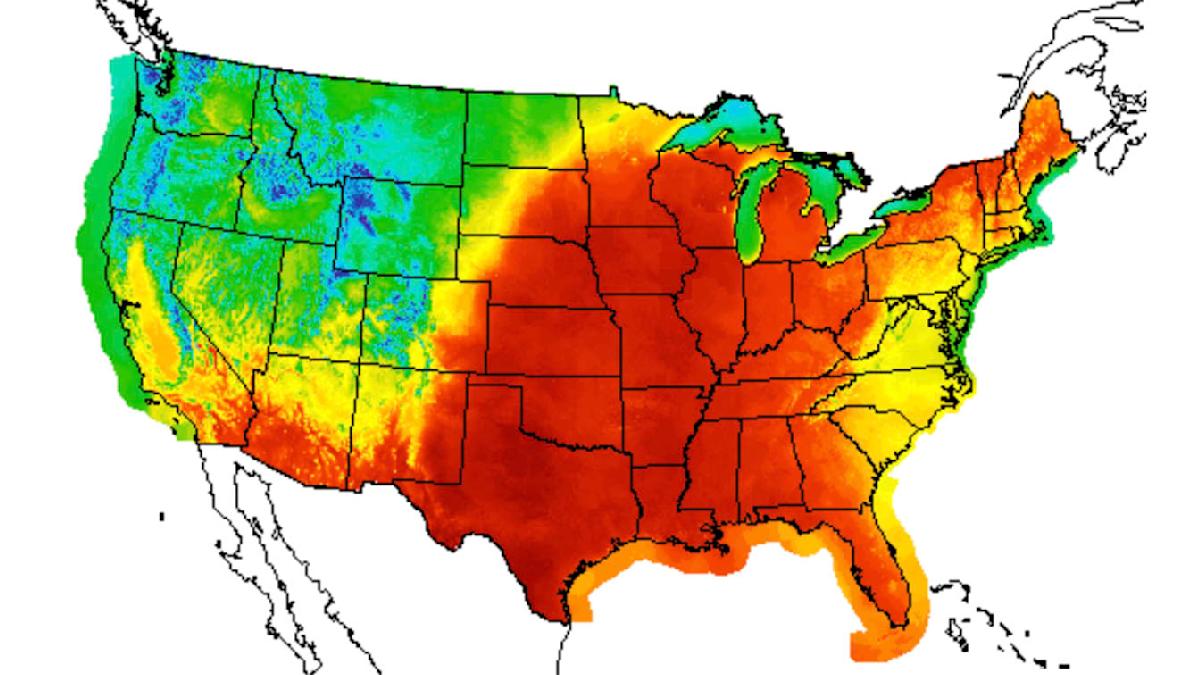After baking the state of Texas, an early-season heat wave is poised to shatter temperature records across the central and Northeastern sections of the United States in the next few days.
Unusually hot weather, with temperatures expected to top 100 degrees Fahrenheit throughout a broad stretch of the country, will affect millions of Americans from Texas to Maine and serve as yet another wake-up call as to the mounting evidence of climate change.
“The heat wave will produce temperatures that are 15-25 degrees above average. In most cases, temperatures this high have not been experienced since September or August last year,” AccuWeather said on its website.
On Saturday, heat records were toppled in the Texas cities Del Rio, San Angelo and Abilene, with the thermometer registering 112 degrees in some locations. At the weekend, San Antonio notched its earliest consecutive 100-degree days on record, the Weather Channel reported. The oppressive heat has been exacerbated by stifling humidity.
“Not only will high humidity result in increased discomfort during the day, but unusually warm nights that are also more typical for July,” Dan DePodwin, head of AccuWeather’s forecasting operations, said.
As the heat wave pushed north and east from the Great Plains, daytime temperatures in cities like Chicago were hotter than those recorded in Death Valley, Calif.
While the singular cause of individual heat waves can be difficult to attribute to climate change, their growing frequency has been linked to the buildup of greenhouse gases in the atmosphere.
“Unusually hot days and multi-day heat waves are a natural part of day-to-day variation in weather. As the Earth’s climate warms, however, hotter-than-usual days and nights are becoming more common and heat waves are expected to become more frequent and intense,” the Environmental Protection Agency says on its website.
What is also clear is that as average temperatures continue to rise thanks to climate change, they intensify each individual event.
“Every heat wave in the world is now made stronger and more likely to happen because of human-caused climate change,” Friederike Otto, a climate scientist at Imperial College of London’s Grantham Institute, told the AFP.
A study published last year’s record-breaking heat wave in the Pacific Northwest, for instance, concluded that it was “virtually impossible” that it would have occurred without human-caused climate change.
The arrival of May temperatures in the U.S. normally not registered until late June or early July is analogous to the early scorching heat wave that has gripped parts of Pakistan and India, which experienced its hottest March on record and the hottest April in 122 years.
The trend line for warmer global temperatures has continued. The last seven years have been the hottest seven in recorded history, according to the National Oceanic Atmospheric Administration. That excess heat has played a major role in droughts across the globe, such as the one that has worsened across the American Southwest. A United Nations report released Wednesday found that, thanks to rising temperatures attributable to climate change, the number and frequency of droughts on the planet have increased by 29% in the past 22 years.
The problem is that rising temperatures speed up the rate of evaporation and disrupt normal weather patterns. Unless mankind can either quickly wean itself from fossil fuel sources of energy, or develop ways to suck carbon from the atmosphere, the years to come will almost certainly be hotter than the previous ones.
As NASA notes on its website, “The effects of human-caused global warming are happening now, are irreversible on the timescale of people alive today, and will worsen in the decades to come.”
While that doesn’t mean an end to winter or cold weather, it does indicate that the ratio of the number of record-high temperatures will continue to outpace the number of lows by a growing margin, as has already been the case.
A 2009 study conducted by the National Center for Atmospheric Research found that new record-setting high temperatures outpaced new record-low temperatures by a ratio of 2:1. Computer models have shown that that disparity will grow to 20:1 by 2050 and by 50:1 by 2100.
